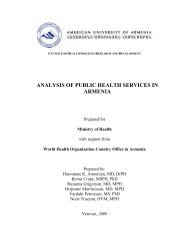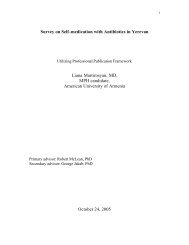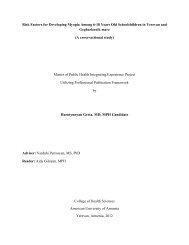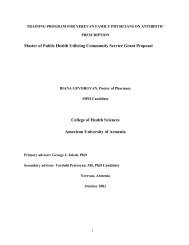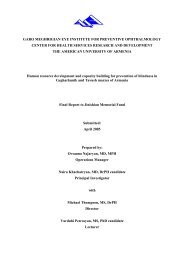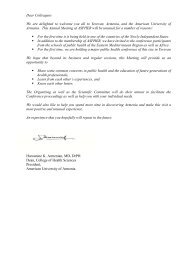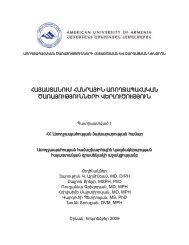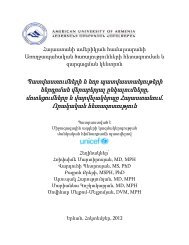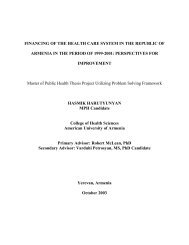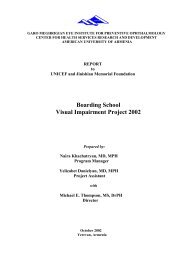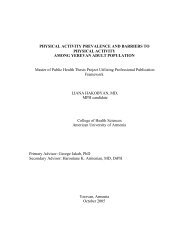A M E R I C A N U N I V E R S I T Y O F A R M E N I A - CHSR
A M E R I C A N U N I V E R S I T Y O F A R M E N I A - CHSR
A M E R I C A N U N I V E R S I T Y O F A R M E N I A - CHSR
You also want an ePaper? Increase the reach of your titles
YUMPU automatically turns print PDFs into web optimized ePapers that Google loves.
important parts of decision-making and problem solving is initial assessment. In order to achieve<br />
this goal UNICEF and other international organization in developing countries conducted several<br />
health and nutritional surveys. By analyzing the data, it was possible to determine the main<br />
causes of undernutrition and poor health status for developing intervention strategies that<br />
decrease morbidity and mortality. Specifically, the purposes of these health and nutritional<br />
assessment are to:<br />
Screen for any health emergency or risk from any emergency<br />
Identify the main causes of emergency, estimate its severity and geographical extent<br />
Assess their likely evolution and impact on health and nutritional state<br />
Identify the areas and the socioeconomic groups most affected or at risk<br />
Assess existing response capacity and identify the most effective measures to prevent or<br />
minimize the nutritional emergency; and<br />
Establish or expand existing surveillance, thus, the effectiveness of measures taken can<br />
be monitored over time [8].<br />
The Kuwait National Survey and cross-sectional study on morbidity and morbidity-associated<br />
factors in Cameroon noted that such factors as birth order, family income and mother's education<br />
and employment status, and, in general, the poverty were found to affect the prevalence of<br />
undernutrition and morbidity in children [3, 13]. Among several factors affecting the prevalence<br />
of obesity among preschool children, birth order was found the main predictor. The result of the<br />
Kuwait survey suggests that the “first child received more care from the young mothers which<br />
may be reflected in overfeeding and hence obesity” [3]. It is also postulated that many mothers in<br />
the Middle East prefer to have an overweight or obese infant than an infant with normal body<br />
8




